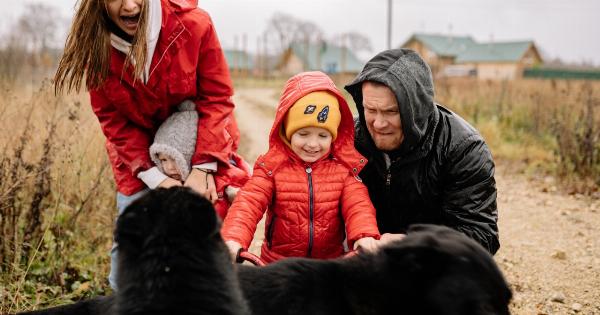The relationship between humans and dogs is a special bond that has existed for centuries. Dogs are often regarded as man’s best friend due to their loyalty, companionship, and unconditional love.
However, is there only one key factor that defines this unique relationship? In this article, we will explore the various elements that contribute to the human-dog relationship and discuss if there is one overarching factor that stands out above all others.
The Role of Communication
Communication plays a vital role in any relationship, and the human-dog relationship is no exception. Dogs have an incredible ability to understand and interpret human cues, gestures, and vocalizations.
Similarly, humans can observe and interpret the body language and vocalizations of their canine companions. This mutual understanding and communication contribute greatly to the bond between humans and dogs.
The Power of Companionship
One of the key factors that make the human-dog relationship so special is the companionship they provide to each other. Dogs are highly social creatures and thrive on human interaction.
They offer emotional support, alleviate loneliness, and can even serve as therapy animals. The companionship they provide helps humans form a deep connection with their canine friends.
Unconditional Love and Loyalty
Dogs are known for their unwavering love and loyalty towards their human counterparts. Regardless of how humans look, behave, or feel, dogs are always there to provide love and support.
Their loyalty is unmatched and plays a significant role in creating a strong bond between humans and dogs.
The Benefits of Exercise and Play
Exercise and play are essential for both humans and dogs to maintain physical and mental well-being. Going for walks, playing fetch, or engaging in other physical activities together helps strengthen the human-dog relationship.
Furthermore, the shared enjoyment of playtime fosters happiness and camaraderie between humans and dogs.
Training and Education
Training and educating dogs are crucial aspects of the human-dog relationship. Through training, humans can teach their dogs essential commands, manners, and behaviors.
This not only ensures a harmonious coexistence but also fosters a sense of understanding and respect between both parties. Training sessions also provide an opportunity for bonding and strengthening the connection.
The Importance of Trust
Trust forms the foundation of any healthy relationship, including the bond between humans and dogs. Dogs rely on their human guardians for their basic needs, including food, water, shelter, and healthcare.
In return, humans trust their dogs to be loyal, obedient, and well-behaved. Establishing trust takes time, patience, and consistent positive reinforcement, but it is a vital aspect of the human-dog relationship.
Therapeutic Assistance
Dogs are known for their therapeutic benefits and are often trained to assist individuals with disabilities or mental health conditions. They provide emotional support, help reduce stress and anxiety, and can even act as service animals.
The therapeutic assistance dogs offer strengthens the bond between humans and dogs, further emphasizing the multi-faceted nature of their relationship.
Emotional Understanding
Dogs have an incredible ability to empathize with human emotions, often referred to as emotional understanding or emotional intelligence. They can sense when their human companions are sad, happy, or distressed, and respond accordingly.
This emotional connection creates a profound understanding and deepens the human-dog relationship.
The Role of Genetics and Evolution
Genetics and evolution also play a part in shaping the human-dog relationship. Dogs have evolved alongside humans for thousands of years, adapting to human environments and lifestyles.
This co-evolution has led to a mutual dependence and a unique bond between both species. The genetic disposition of dogs to be affectionate, protective, and social contributes to the strength of the human-dog relationship.
The Conclusion
In conclusion, the human-dog relationship is a complex and multifaceted bond with many key factors at play.
Communication, companionship, unconditional love, loyalty, exercise, training, trust, therapeutic assistance, emotional understanding, and genetics all contribute to the strength and uniqueness of this relationship. While it may be difficult to pinpoint a single key factor, it is the combination of these various elements that makes the human-dog relationship so special and enduring.






























